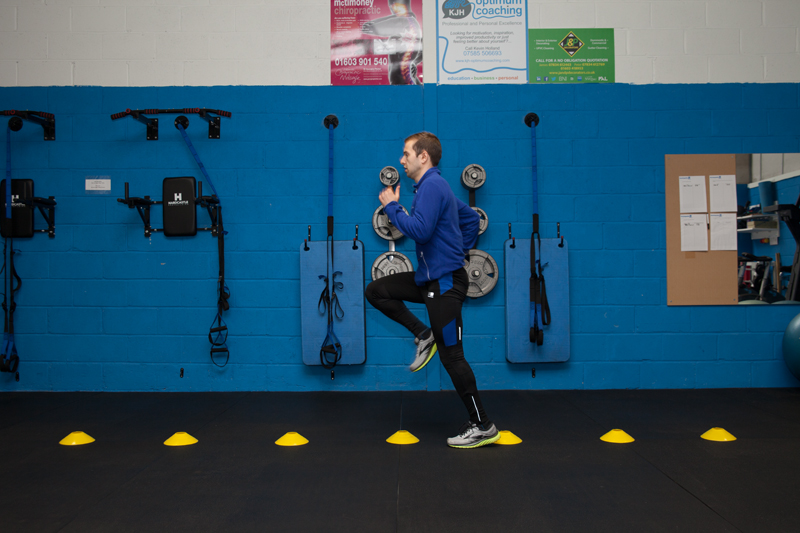Strength training. One of the most neglected areas of training for many runners, and something that’s often addressed in ways that aren’t ideal. It can be a multifaceted part of training for all runners, and is especially important for marathoners, but it might not always be what you expect.
What can runners do for strength training?
Depending on who gives you guidance on strength training, you could end up with any number of different workout styles.
Having worked in a gym for a few years as a personal trainer, it’s not uncommon for lazy trainers, or those without an in-depth understanding of the needs of runners, to set a basic workout on machines. This would work the major muscles we use, but in running it’s also about the right movement patterns, impact and so many other things that machines alone just can’t give you.
Other coaches or trainers might give you a series of bodyweight and light resistance exercises with high repetitions to build muscle endurance. Whilst not wrong, it misses the point that you’re already contracting those muscles thousands of times per run, with enough force to control and propel several times your bodyweight.
Single sided or unilateral exercises are generally your best option since running is inherently a single sided exercise, repeated thousands of times. Bilateral exercises, with both sides of the body working at the same time still have their place however. Banded exercises, those using bodyweight and light resistance still have their place in targeting specific muscles also, but TARGETING is the key word here. We need to use the right muscles, and even the right types of muscle contractions for the changes or improvements we’re looking to create whether that be performance improvement through strength, or changes in movement.
We all have slight biases, no matter how much we still consider the individual in front of us (some trainers/coaches do this more than others), so will lean towards one approach or another a lot of the time. It’s important to keep an open mind as much as possible, both as the athlete being coached, and as the person creating a programme to help runners.
A different approach
There are lots of different things to consider when setting up a strength programme for runners, too many to list here without boring you into a stupor, but the various types of muscle contraction and directions of movement should be considered.
I used to hate doing exercises which required resetting position or stopping between each repetition, but as I’ve learned more through courses and working with great professionals, and having experimented with it in my own training, I can see the benefits. Exercises like single leg horizontal jumps with a twisting movement for example. A set of 8 reps takes a bit longer to do than some hopping on the spot, but the power benefits can be huge, and help you get further with every stride when running. Both options are useful, but the combination is simply more useful most of the time.
Very slow movements, or very small movements can also have a big benefit on our running performance. Whilst the more obvious approach is to focus on strength to push and endure, what tends to be overlooked is our ability to absorb and minimise shock/impact through landing, or control our body in challenging positions. Some of the technical drills that professional runners do can look silly to us, but have very deliberate purposes such as foot placement relative to their centre of mass (COM) and reducing the time their foot is in contact with the floor, which in turn helps with efficiency. These movements don’t have to be reserved for elites or pre-race warm ups only, and can be incorporated into our own training as amateurs.
Whilst the general strengthening work that springs to mind is absolutely going to help most of us runners, most of us are missing out on other ways to gain that could be more specific, and better serve us in the long term. Don’t be afraid to try new things or speak to fitness professionals who have a different approach to what you expect. There’s a reason they’re the expert, so trust them and see for yourself.
Written by Kyle Brooks, Running Coach based in Norwich, Norfolk

